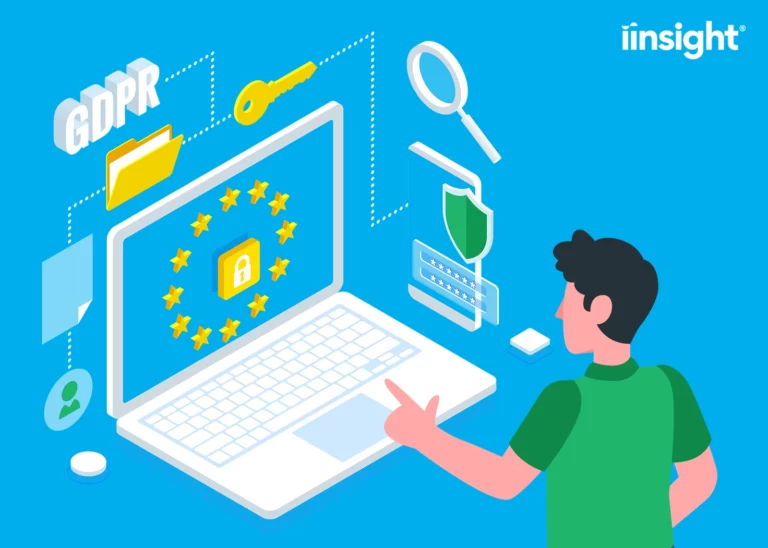There are over 200,000 allied health professionals in Australia. This number is only expected to grow as demand increases over the next decade.
While this is good news for patients, it presents a challenge to clinics trying to get enough patients to stay open. And if you struggle with clinic management, this task gets even more difficult.
Between appointment mix-ups and unfriendly staff, improper management is a surefire way to make sure your patients leave a negative review—and never come back.
The good news is that you can start improving your clinic management today. And once you get into a routine, you’ll find that these tips are easy to follow.
Ready to learn more? Keep reading for our simple yet effective tips for managing your allied health clinic this year!
Track Your Time
Before you start improving your clinic management, you need to get a clear idea of what you’re currently doing.
For two weeks, make a note of every clinic task you complete and how long it takes you. This includes patient-related tasks (like appointments) and clinic maintenance (like billing). If you find it too overwhelming to track your time on paper, use a time-tracking app to help you.
One of the most important metrics to track is how much time you spend with each patient. While some outliers are normal (such as a patient with severe mobility issues), your appointments should stay within the allotted time.
Don’t forget to note which patients are there for a first-time visit and if there’s a day where these visits are the most popular. This will help you improve your clinic policies, hours, and intake procedures later on.
At the end of the week, take a look at your list and see which tasks are most time-consuming. Perhaps you’re spending too much time on paperwork, which results in long overtime hours for you and your staff.
Once you’ve identified areas that need improvement, you can decide which tasks you need to streamline and which you need more time for.
Automate Time-Consuming Tasks
One of the quickest ways to streamline your health clinic is to automate any tasks that technology could do faster than you can. For example, billing is a time-consuming process that requires attention to detail.
Luckily, there are many ways to automate this process. For example, you can use clinic management software that automatically tracks patient payments and generates invoices. This way, you can spend less time on billing and more time on patient care.
Another of the most time-consuming parts of managing a clinic is confirming appointments. Most clinics do this by phone call, but this can take hours out of your receptionist’s time.
Since no-show rates can be as high as 80% in some healthcare settings, clinics often have their receptionists give reminder calls to patients the day before. Unfortunately, this stops your receptionist from attending to the patients right in front of them.
Another benefit of appointment management software is that it can automatically remind patients of appointments.
You can set this up so that patients get a text, email, or both. You can set up these reminders to be a certain number of days or hours before their appointment. This helps you reduce both late cancellations and no-shows.
And with iinsight’s software, you can email scanned files directly to the program. Here, they’ll be automatically uploaded to the cloud (and to the case file).
Delegate Tasks
One of the best ways to improve clinic management is to delegate tasks.
This can be difficult if you’re used to doing everything yourself, but it’s important to remember that you can’t do everything. If you try to, you’ll burn out and your customer care will suffer as a result.
The most common tasks to delegate include:
- Appointment scheduling
- Billing and invoicing
- Marketing
- Patient/customer follow-up
Remember that you can either delegate tasks to a staff member or use technology to simplify your processes. To decide, think about whether a person or a program would do the task more efficiently.
For example, appointment software would do a better job overall of reminding patients of appointments. But with some elderly patients, a kind phone call from your receptionist is the better option.
For administrative tasks like data entry, iinsight’s software can help you simplify your processes by letting you drag and drop documents into each case.
Let Patients Book Online
If you want to make your clinic run more smoothly, one of the best things you can do is let patients book their own appointments online.
This adds an important layer of convenience for patients, as they can book an appointment at a time that suits them. Otherwise, your receptionist has to go back and forth with patients. This takes time away from greeting incoming patients and answering urgent phone calls.
Online booking is also a great way to see when your most popular dates and times are. For example, your clinic might have many millennials as customers.
This demographic is more likely to book on the weekends or after work hours. They’re also more likely to prefer making appointments online rather than phoning the clinic. Having this knowledge helps you adjust your clinic hours to better suit your customers (and get more revenue coming in).
Another huge benefit of using automated appointment management is that you can see all your appointments at a glance. For example, iinsight’s case management software integrates with Google Calendar, iCal, and Outlook.
So when you come into the clinic each morning, you’ll be able to see your appointments in real-time, even if some of them get canceled or shuffled around.
Learn How to Interpret Data
In order to make the best decisions for your clinic, you need to learn how to interpret data. Data can be very helpful in clinic management because it can help you see patterns that you wouldn’t otherwise notice. For example, let’s say you’re trying to decide whether to offer Saturday appointments.
You might look at your clinic’s appointment data and see that Saturday appointments are only booked 10% of the time. But if you dig a little deeper, you might notice that Saturday appointments are mostly booked by new patients.
In this case, offering Saturday appointments could be a good way to attract new customers.
Data can also be helpful in clinic management because it can help you track your progress and see where you need to make improvements. For example, let’s say you want to increase patient satisfaction at your clinic. Your data might show you that patient satisfaction is highest on days when the clinic is running on time.
You might also see that patient satisfaction is lowest on days when the clinic is running late. This data can help you make decisions about how to run your clinic more efficiently.
Keep Paperwork Organized
One of the best ways to keep your clinic running smoothly is to keep your paperwork organized. This includes everything from patient files to invoices.
One way to keep your paperwork organized is to use a filing system. This can be as simple as color-coding your files or using labels.
Another way to keep your paperwork organized is to use clinic management software. This software can help you track and manage all of your clinic’s paperwork in one place.
Another clinic task that results in organized paperwork is using custom forms. If you’re using generic forms (such as intake forms), you’ll have to spend more time organizing them into categories and making notes on the forms.
But with custom forms, you can customize them with all the questions you need to ask for onboarding, diagnosis, and treatment. And since you can brand them with your logo, your forms also double as a marketing tool.
Hold Regular Staff Meetings
Even if you have a procedure manual for your staff, you should still hold regular staff meetings.
At these meetings, you can discuss any problems that have arisen and brainstorm solutions. This fosters an environment of open communication. You can also use these meetings to announce any changes in clinic policy or procedure.
Since people sometimes miss emails or memos, meetings ensure that everyone is on the same page.
Remember that your staff meetings don’t have to be long. Even a short 5-10 minute meeting in the morning before the clinic opens can make a huge difference to clinic organization and staff communication.
Keep Track of Costs
80% of business failures come down to mismanagement of cash flow. So one of the most important clinic management tasks you can do is to keep track of all your clinic’s costs (and incoming revenue).
This includes everything from the cost of rent, supplies, contractor costs, and insurance. Tracking your costs shows you where you’re spending unnecessary money. It also shows where you could invest in business growth, such as marketing campaigns.
One of the best ways to keep track of clinic costs is to use software that can integrate with accounting software. By tracking all these costs, you can ensure that your clinic is running within its budget. Hopefully, you can also save some money for unforeseen expenses.
You can also use this information to negotiate better deals with vendors and suppliers. For example, if you know that you’re spending a lot of money on clinic supplies, you can negotiate a bulk discount with your supplier.
Create KPIs
Key performance indicators (KPIs) are an important part of clinic management. In simple terms, KPIs are a quantifiable measure of how much progress you’ve made towards a set goal.
There is a variety of KPIs that an allied health practice can use to track its progress.
Some common KPIs include:
- Patient satisfaction ratings
- Revenue generated
- Number of new patients/customers
- Number of returning patients/customers
- Percentage of missed or canceled appointments
- The average length of time spent with each patient
- Number of referrals generate
- Percentage of patients who schedule a follow-up
- Staff satisfaction ratings
The KPIs you choose will depend on your current clinic goals, but try to focus on two to three KPIs at a time. This will help you zero in on how well you’re meeting your clinic goals and what issues are slowing your progress down. While you can track KPIs by hand using a spreadsheet, this is time-consuming and prone to error.
Instead, you can use clinic management software to track your clinic’s KPIs. By using KPI reports, you can see how well your clinic is performing and identify areas that need improvement.
Improve Staff Morale
Did you know that a lack of management skills makes employees 4 times more likely to quit? So while you should hire friendly staff, you also need to focus on employee retention. Keeping morale high is the best way to do this.
Some of the main reasons staff morale goes down include:
- Feeling burnt out
- Overwork and overtime
- Unfair compensation
- Feeling unappreciated
- Feeling like they’re not part of a team
There are a few different ways to improve staff morale at your clinic. One way is to make sure that your employees are properly compensated. This includes things like fair wages and benefits.
Another way to improve clinic staff morale is to show your appreciation. This can be done in a variety of ways, such as giving them verbal compliments or giving them favorable performance reviews.
Finally, you can improve staff morale by making sure that they feel like they’re part of a team. You can do this through staff meetings, holiday parties, and encouraging open communication.
Clinic Management Made Simple
With all the tasks you have to juggle, clinic management can seem like a daunting task. But once you get into the habit of following these tips, you’ll soon see that your clinic is running more smoothly and efficiently than ever before!
And if you’re looking for case management software that helps you work smarter, iinsight can help. Our cloud-based software is easy to use and is made for allied health professionals like you.
Fill out our contact form today to arrange a personalized demonstration to see how iinsight can suit your needs!












